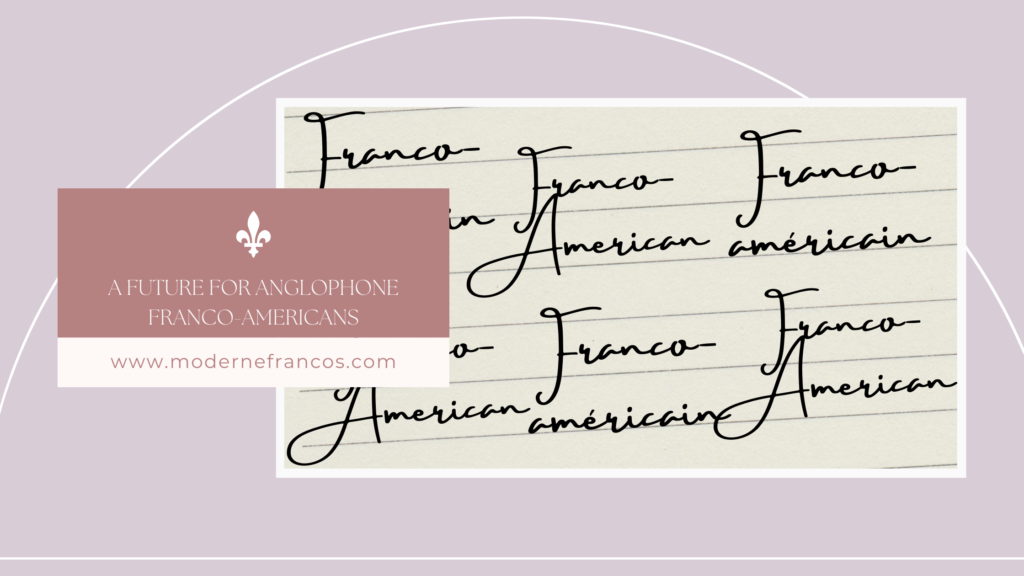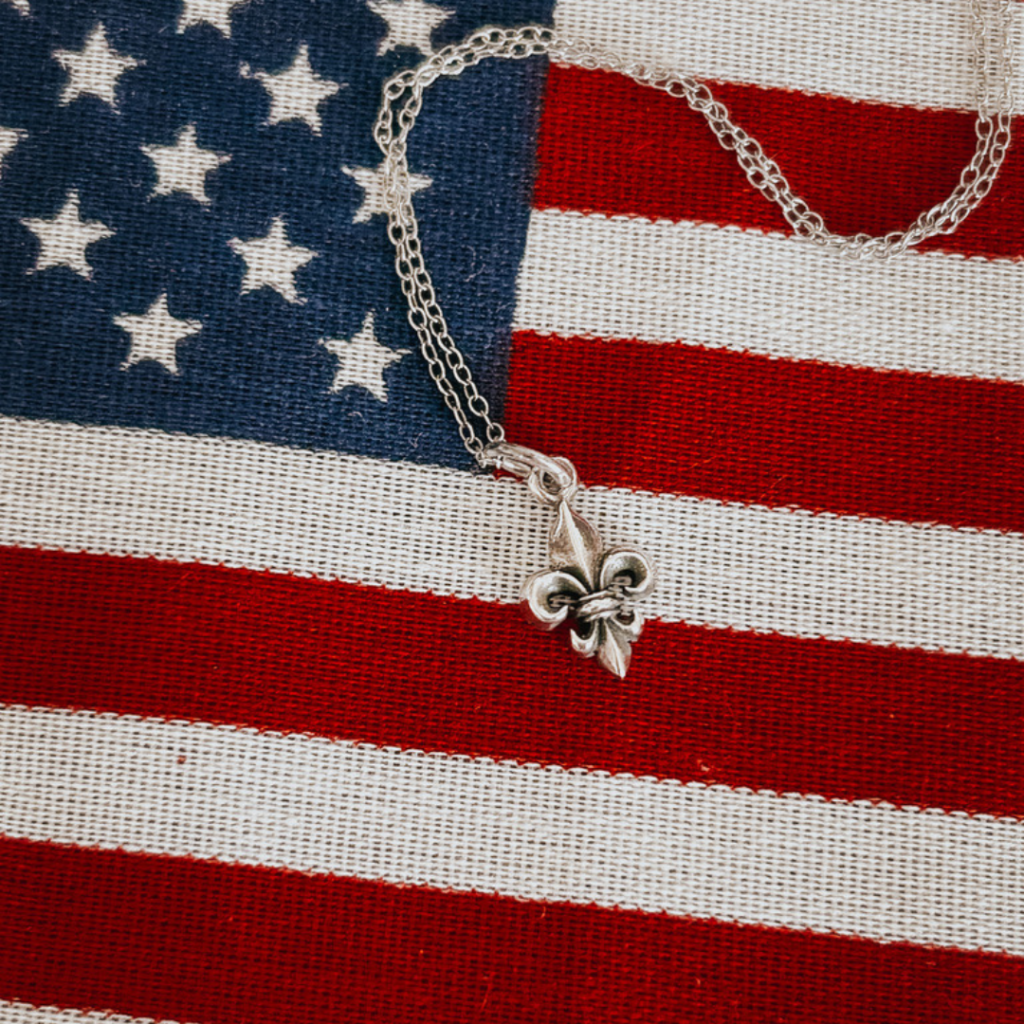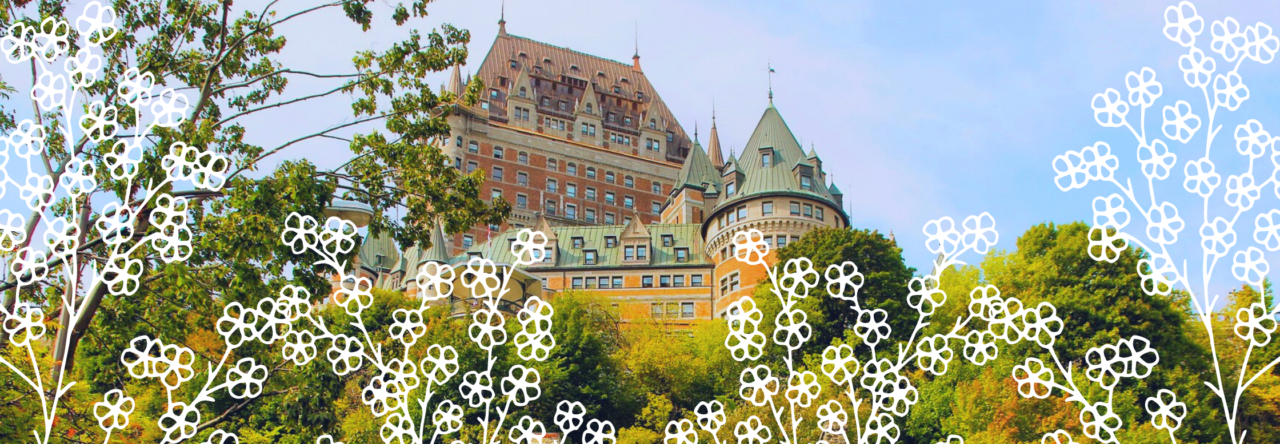
It’s not difficult to know what’s expected of Anglophone Franco-Americans through discourse in our social circles. The criticism for not speaking French fluently as soon as we discover or rediscover our roots keeps coming back around as a cause of death for our culture.
In my experience, I’ve received critical responses online about writing this blog in English. I’ve read online discussions with some proclaiming that we have no heritage or culture left just because we’re English-speaking Franco-Americans in a majority Anglophone country.
Although I’m working on learning French and am beginning to understand simple sentences and lightly converse, I will always be an Anglophone. And I don’t find it conflicting with my Franco-American heritage at all.
While there are plenty of Franco-Americans working to revive the culture, we’re told not to even try anymore. But that’s not up to anyone else to decide who is who for speaking French or not speaking French.
Franco-Americans engaged in the culture try their best to take a modern approach. We know that not everyone is going to want to speak French or dedicate the time to learn. So, we try to lead people into the language with the parts of our culture that we can see, hear, and taste.
We create events with traditional French-Canadian and Québécois music, food, and plenty of fleur-de-lis symbols to indicate our background. Not to mention the number of French-Canadian surnames in the United States, particularly in New England and the Northeast overall.
We’re Not Dead, We’re Americans
As I spoke about in French All Around Us (Le Français Autour De Nous), I grew up knowing that there was a French part of me. Through my Franco-American side of the family, I knew some French words, I knew I had a mémère and pépère, and I knew that words ending in et, aux, or oit weren’t pronounced in the English-speaking way (although, even now, I sometimes mess that up at first glance).

Some may not think these things matter, but they did and they still do. Many of us in the younger generations, starting with millennials, didn’t have the same direct access to the French language as the generation before us. Many of our families stopped speaking French when they moved out of the Petit Canada neighborhoods or didn’t see a reason to pass on the language.
Some Franco-Americans and Québécois try to use this loss of the French language as a point that the culture has been lost as well. Although there are steps to take in reviving the culture from complete Americanization, I must disagree that we’re at death’s door. How did I know of my heritage before I even knew of the term “Franco-American?”
Many young Franco-Americans recall growing up with some parts of the language, at least saying mémère and pépère instead of “grandma” and “grandpa.” The same goes for having a tourtière and other French-Canadian foods on the Christmas dinner table.
The blending of French-Canadian and American culture is what makes Franco-Americans who we are. That’s why my Franco-American side of the family preferred this term over others; it was their way of expressing their pride in their heritage and nationality.
Being Anglophone Is Part of Our American Story
Being an Anglophone Franco-American isn’t indicative of culture loss; it’s a regular occurrence in the United States for descendants of immigrants to pass on the majority language of English. Do I wish I was taught French at a young age? Of course! But it wasn’t accessible to me in school and there were no easy-peasy language apps when I was growing up.
Even through my mother, the French language wasn’t passed on because her parents and adult relatives spoke English to the children of the family by the 1960s. They would speak French amongst themselves but wanted to give their children, nieces, nephews, and grandchildren the English language to get ahead in a society that did not value French.

Unfortunate, yes. But a sign of a dying culture? I think language is an important part of culture, but, in my experience, it doesn’t make up the entire culture. Although this is viewed much differently in Québec, it’s not a fair comparison because the U.S. is a majority Anglophone country.
Language loss is bound to happen in our country, so it’s up to individual cultures to keep their language going as best as they can. But it takes more than language to save a culture: its survival also depends on how proactive its members are in saving it.
When cultures are on a mission to revive their lost language, it’s seen as a virtuous endeavor and not hopeless. But when Anglophone Franco-Americans want to learn the French language and eventually pass it down, it’s either celebrated as a triumph over English or already seen as a lost cause. Isn’t it a sign of hope when we choose to learn French to improve our communication and feel closer to our heritage?
Speaking English as our native language with our French-Canadian roots makes us a more distinct, unique group. Not speaking French can hold us back at times in conversation and connection with Francophones, but Anglophone Franco-Americans are a hidden gem of a cultural world that must reveal itself without shame.
The only battles I’m invested in are learning French to the best of my ability and showing the value of the language to mainstream American culture. I would be proud to have my native language and heritage language working together, and would never think that one is better than the other.
Some of Us Are Hidden Behind Other Names
Being in the Melting Pot, some Franco-Americans were not born with French-Canadian surnames. Through marriage, Franco-American women who took their non-Franco’s husband’s name lost that part of their cultural recognition. Thus, the French-Canadian name wasn’t passed on to their children.
This doesn’t make anyone less Franco-American, but it can certainly feel like it sometimes. For instance, that is my Franco-American story; my legal surname is German because my paternal side is not Franco-American. Although I don’t hate my surname and go by it in my personal and work life, there is a reason I wanted to use a French-Canadian surname from my maternal side for this blog.
It was important for me to take back that side of myself that I had been mostly disconnected from due to distance. I grew up far away from my home state of New Hampshire and I barely knew my mémère, but I have fond memories of visiting her. My time with her was brief, and I only wished I had been older so I could have asked her endless questions about her life.
But that’s why I decided to write under her maiden name, to take that piece of our Franco-American heritage and use it to promote our culture. I consider myself lucky that I had a sense of my heritage at a young age through the French words and pronunciation my mother used regularly.
So, before accusing people you perceive to not be Franco-American solely based on their last name, I urge you to listen to their story. They could be like me, hidden behind another name due to marriage — whether their parent’s marriage or their own.
I can’t help but get lost in thought about the number of Franco-American women of years past who dropped their French-Canadian surname due to expectations at the time. It happened to men, as well, if they didn’t have sons to pass on the family name. It’s neither here nor there, but it’s ironic in a way how this tightly-held, often religious, tradition contributed to some loss of Franco-American visibility.
The Future
Referencing the “twice orphans” that are said of Franco-Americans due to our argued disconnection from France and then Québec doesn’t consider the staying power for us in the U.S.
Anglophone Franco-Americans are a part of the Franco-American story just as much as Francophone Franco-Americans. Our story can be complicated and messy, but that’s what makes it whole.
The ones before us sacrificed their language and culture for us to fit into American society and succeed well beyond the limits of their time. Is it unfortunate that Franco-Americans had to experience the fragmentation of the French language? Of course.
However, we shouldn’t diminish the challenges faced by our French-Canadian ancestors when they emigrated to the U.S. in hopes of a better life. We didn’t lose a battle by becoming Americanized: we inadvertently created a culture of our own.
It’s up to us to further define ourselves as Franco-Americans and bring back language and culture where it’s become misguided or lost. We’ll always be in between both worlds of Québec and the U.S., and it’s not a loss, but a victory that our ancestors sought for the generations after them.
We’re a unique blend of ancestry, heritage, culture, dual language, and nationality. All we must do now is be proud of how far we’ve come and proactively boost our visibility in new ways for those who will come after us.

Rebecca Drew
It’s wonderful how you use the lovely name of Desjardins to honor your mother’s side. It’s equally wonderful how you counterbalance the critics who want to act as gatekeepers. Meanwhile, I have shifted my interests to other areas of the world, such as French-speaking areas abroad. I never tried to claim the Franco culture in the United States, because I just wanted to learn more about the culture my ancestors chose to leave. The critics can’t stop anyone from enjoying the language and culture of French as it is manifested elsewhere. I admire the way you take a stand for owning your roots in modern times. Keep having fun!
Wesley Morris-Laviolette
You have a vision of growth and rebuilding. I wholeheartedly agree. My 2 cents to possibly communicate francophone people’s thoughts: I grew up as a francophone French Canadian in Ontario. I feel like the language is dying evermore every day, within francophones and in Canadian society where it once resisted. That process of seeing your native tongue atrophy in real time is disconcerting. It is like watching a part of you dying. That may be where the touchiness of French Canadians comes from. If you grew up after that process already occurred, as 100% anglophone, I think you can see the historical loss but will not feel the same emotional/spiritual malaise and pain. That said, I love the idea of Franco-Americans taking « la relève culturelle ».
Yvan Michaud
Bonjour Melody,
Merci pour votre témoignage essentiel.
Bien que je ne connaisse personne de ma famille éloignée aux États-Unis, je sais aussi qu’il y a des tas de Michaud et de Dionne (le nom de mes parents) installés aux quatre coins de votre pays, cousins et cousines perdus de vus depuis longtemps. Je ressens pourtant un réel attachement avec tous ses descendants, surtout lorsqu’ils ou elles s’expriment sur leur identité. Qu’ils parlent ou non le français est secondaire.
Un de vos compatriotes écrivait récemment “we” pour bien montrer son appartenance à la diaspora canadienne-française américaine. Ça m’a beaucoup touché. Ce qui compte au final, c’est l’identité revendiquée. De savoir qu’il y a des gens comme vous au Sud de la frontière qui revendiquent toujours cette identité est terriblement important, parce que la lutte des Québécois francophones pour la préservation de leur langue et de leur identité se poursuit toujours en 2023. À Montréal, c’est encore une lutte de tous les jours. Vous lire donne du courage. Merci.
Maxime Gousse
You never loose when you choose. The fact that you write about your heritage is “merveilleux” 😀
Merci de Lanaudière north east of Montréal
Martin Sirois
Great article! By the way, the idea that language is the root of a culture has a long history, and not a good one. The “Byzantines” used to call themselves Romans because they were part of the Roman Empire (the Eastern part). But, the Romans of Rome, after the Western part of the Empire fell, basically said “You are not TRUE Romans; you don’t speak Latin!” This argument has a long history in scholarship, but is just now being set aside.
Sorry for the rant, but just know that I, for one, will champion the rise of Franco-American culture in English and/or French!
Carol Frechette Thomas
Brava!
Scott Graves
Your most engaging essay begs the question, what is culture? Most assuredly one of the lasting characteristics of culture can be language. But as you write about, it’s in our music, our food, our habits, our love for and sense of place or for people. We understand that there is a political as well as cultural history behind the Quebecois stance on language’s relationship to all those whose origins start in Quebec. In my personal experience, some of the more intense reactions by our brothers and sisters in Quebec have parallels to disempowered groups inside the United States. Tribalism is the result of many factors including the fear of loss.
Culture, like history’s narrative, is fluid. It is also a phenomenon only empowering, to the individual or the group when there is space to allow each person to define their culture.
I’ll take that a step further. This continent, colonized by others, is a place of re-definition. It remains essential that we do not discount the empowerment generations of people who came here to re-define themselves enjoyed. Who are we to question how one defines themselves? Half of my French-Canadian ancestry hails from a German jagger who fought in the campaign with Burgoyne and stayed in Quebec, alongside some 5000 other German mercenaries who chose a new continent over an old one. We only learned of this a decade ago. This only sweetens our story. A uniquely North American story.
What if we considered ourselves as North Americans or people of the Americas? I believe this can be achieved without discounting pride in the nations we inhabit. But in order to get beyond these petty arguments we must come to value ourselves as a unique, self-defining body of people of many nations, empowered to create a better society with the capability to celebrate our past. Both the good, the bad, the bittersweet sacrifices. The humanity of it all.
Such a perspective can help us get beyond a number of cultural disputes including this one. We might have a chance to get right with the many unresolved stories of colonialism. Or how our people among many other immigrant populations were treated in the mills as well as outside Little Canada.
Perhaps the greatest language to learn is the language of love.